Evolution Of Geographical Thought By Dr. Krishnanand

Evolution Of Geographical Thought Ebook
Embark on a Fascinating Journey Through the Evolution of Geographical Thought.
Are you ready to delve deep into the intricate tapestry of geographical thought?
Prepare to embark on an enlightening journey through the ages, exploring the evolution of ideas, theories, and paradigms that have shaped our understanding of the world around us.
Welcome to “Evolution Of Geographical Thought (Revised)” – an exceptional e-book curated by the esteemed Dr. Krishnanand, drawing from his extensive expertise and acclaimed YouTube lectures on TheGeoecologist channel.
Unlocking the Gates of Knowledge: The Prelude.
As you open the virtual gates of this e-book, you’re greeted with a treasure trove of intellectual exploration. The journey begins with Lecture 1, where we venture into the “PRE”GRECO-ROMAN WORLD, laying the groundwork for the subsequent lectures.
From the ancient civilizations of Mesopotamia and Egypt to the early explorations of geographical concepts, this initial chapter sets the stage for a profound exploration of human understanding and perception of the Earth.
Traversing Ancient Wisdom: The Greek and Roman Scholars.
With Lecture 2, we transition into the era of Greek Scholars, where luminaries like Thales, Anaximander, and Eratosthenes laid the foundation for systematic geographical inquiry.
From the revolutionary concept of a spherical Earth to the calculation of its circumference, the contributions of these ancient thinkers reverberate through the corridors of time.
Building upon the Greek legacy, Lecture 3 introduces us to the Roman Scholars, who synthesized and expanded upon earlier geographical knowledge.
Figures like Strabo and Ptolemy advanced cartography and geographical description, providing invaluable insights into the contours of the known world. Through their meticulous observations and writings, they left an indelible mark on the annals of geographical thought.
Navigating the Dark Ages: Europe’s Intellectual Resurgence.
As we progress through Lecture 4, we find ourselves amidst the tumultuous period known as the Dark Ages in Europe. Amidst political upheaval and societal flux, geographical inquiry waned, yet pockets of knowledge persisted.
It is within this context that we explore the resilience of geographical thought amidst adversity, laying the groundwork for the intellectual revival that follows.
The Arab Renaissance: Revival of Learning.
Lecture 5 of Evolution Of Geographical Thought illuminates the contributions of Arab Scholars during the medieval period, a time often referred to as the Arab Renaissance.
Drawing upon the rich traditions of Greek and Roman knowledge, scholars like Al-Idrisi and Ibn Battuta propelled geographical inquiry to new heights. Their explorations, writings, and maps expanded the boundaries of human understanding, paving the way for the Age of Exploration.
Charting New Horizons: The Age of Exploration.
Enter Lecture 6, where we embark on a voyage of discovery across uncharted seas and distant lands. The Age of Exploration witnessed a flurry of activity as intrepid explorers like Christopher Columbus, Vasco da Gama, and Ferdinand Magellan ventured into the unknown.
Their expeditions not only reshaped the map of the world but also ignited a fervent curiosity about the Earth’s geographical features and inhabitants.
Tracing the Intellectual Landscape: From Pre-Modern to Modern.
Transitioning into the pre-modern period, Lecture 7 of Evolution Of Geographical Thought introduces us to figures like Varenius and Kant, whose philosophical insights laid the groundwork for modern geographical thought.
As we delve deeper into Lecture 8, we encounter the towering figures of Humboldt and Ritter, whose holistic approach to geography revolutionized the field.
Through their interdisciplinary inquiries, they emphasized the interconnectedness of natural phenomena and human societies, shaping the classical period of geographical thought.
Exploring Diverse Schools of Thought: From Germany to America.
In Lecture 9 of Evolution Of Geographical Thought , we navigate through the German School of Geographical Thought, characterized by meticulous empirical research and rigorous methodologies.
Figures like Friedrich Ratzel and Carl Ritter spearheaded this tradition, laying the groundwork for modern geographical scholarship.
Transitioning across the English Channel, Lecture 10 introduces us to the French School of Geographical Thought, where thinkers like Paul Vidal de la Blache emphasized the importance of regional analysis and cultural landscapes.
From there, Lecture 11 leads us to the shores of Britain, where figures like Halford Mackinder and Ellen Churchill Semple shaped the contours of British geographical thought with their seminal works on geopolitics and environmental determinism.
As we cross the Atlantic Ocean, Lecture 12 brings us to the American School of Geographical Thought, characterized by its pragmatic approach and emphasis on applied geography.
Figures like William Morris Davis and Carl Sauer left an indelible mark on the discipline, laying the groundwork for contemporary geographic inquiry.
Embracing Global Perspectives: Indian Scholars in Geographical Thought.
In Lecture 13, we turn our gaze to the Indian subcontinent, where a rich tradition of geographical inquiry has flourished for millennia.
From the ancient treatises of Chanakya to the modern insights of Radhakamal Mukerjee, Indian scholars have made profound contributions to the field of geography, enriching our understanding of the diverse landscapes and cultures of South Asia.
Navigating Debates and Dichotomies: From Dualism to Realism.
As we progress through the subsequent lectures on Evolution Of Geographical Thought , we encounter a myriad of debates and dichotomies that have animated geographical thought.
Lecture 14 explores dualism and dichotomies, shedding light on the tension between environmental determinism and possibilism, regionalism and globalism, and other conceptual divides.
Transitioning into Lecture 16, we encounter the quantitative revolution in geography, marked by the proliferation of mathematical models and statistical techniques.
From regional synthesis (Lecture 17) to environmentalism (Lecture 18), locational analysis (Lecture 19) to paradigms in geography (Lecture 20), each lecture offers a nuanced exploration of key themes and concepts shaping contemporary geographical inquiry.
Unveiling Ideological Perspectives: From Positivism to Feminism.
Lecture 21 of Evolution Of Geographical Thought delves into positivism in geographical thought, tracing its roots in Enlightenment philosophy and its enduring influence on empirical research and scientific inquiry.
From there, Lecture 22 explores behaviouralism in geography, highlighting the role of psychology and sociology in shaping our understanding of human-environment interactions.
As we progress through subsequent lectures on Evolution Of Geographical Thought , we encounter a diverse array of ideological perspectives, from Marxism (Lecture 23) to radicalism (Lecture 24), structuralism (Lecture 25) to humanism (Lecture 26).
Each lecture offers a critical examination of the theoretical frameworks and methodological approaches that have shaped geographical discourse. Transitioning into Lecture 32, we explore feminism and ecofeminism in geographical thought, shedding light on the gendered dimensions of space, place, and environment.
From the marginalization of women in traditional geographical inquiry to the emergence of feminist geographies, this lecture offers a provocative critique of existing paradigms and a call for more inclusive and equitable approaches to geographic research.
Conclusion On Evolution Of Geographical Thought :
As we conclude our journey through the evolution of geographical thought, we are reminded of the enduring relevance of this discipline in an increasingly interconnected and complex world.
From ancient civilizations to contemporary debates, the quest to understand our planet and its inhabitants continues unabated.
“Evolution Of Geographical Thought (Revised)” stands as a testament to the enduring power of human curiosity and intellectual inquiry.
Follow The Author On Facebook
Subscribe The Author On Youtube
Follow The Author On Instagram


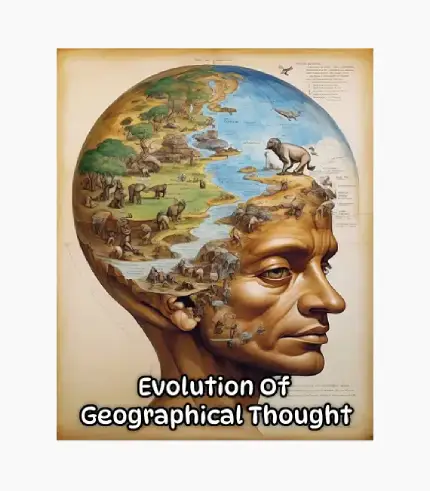
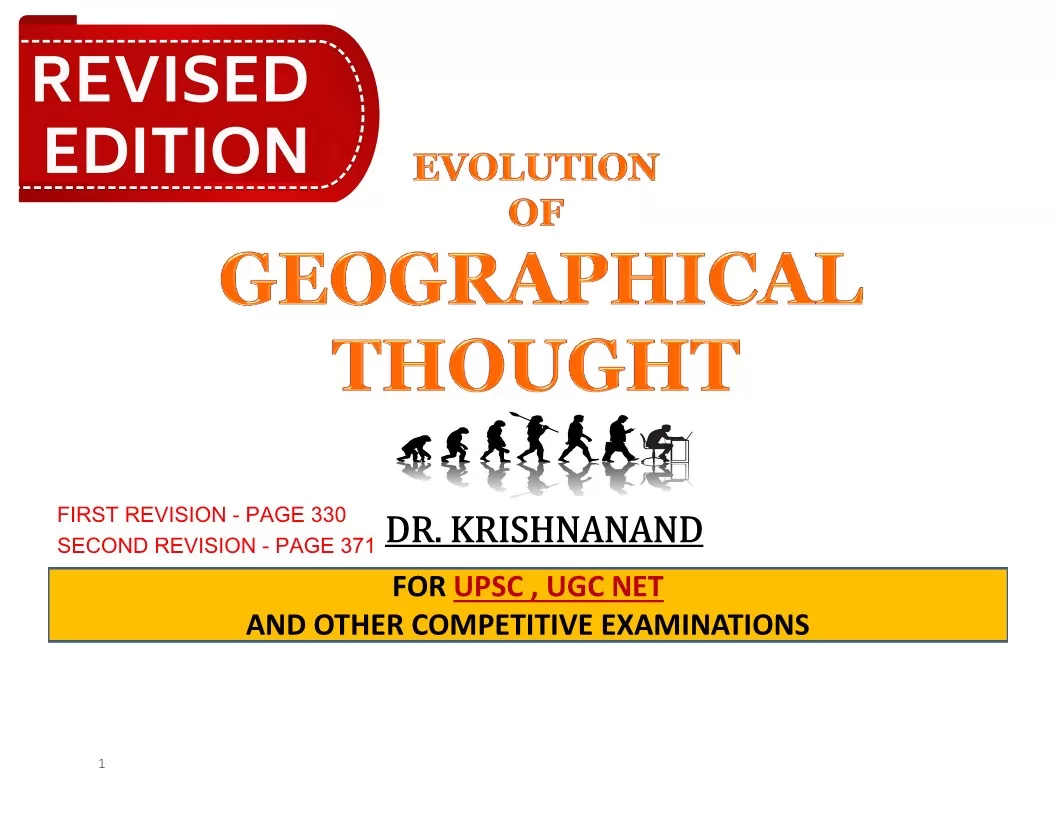
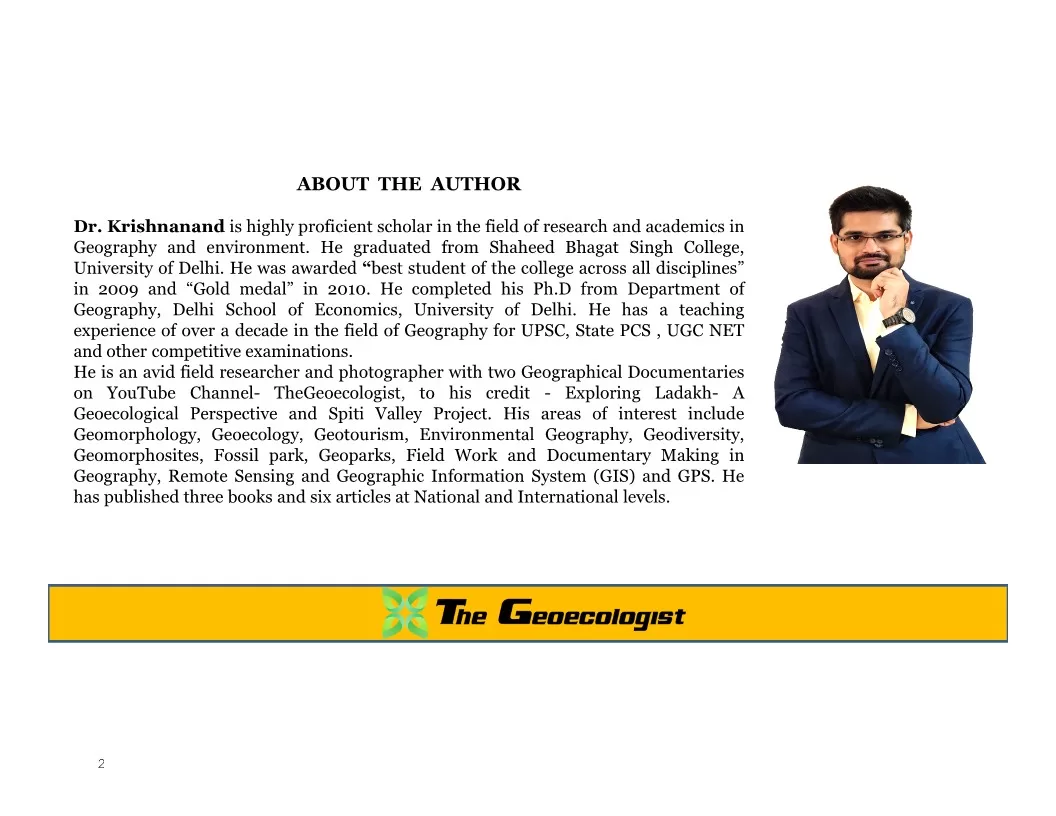
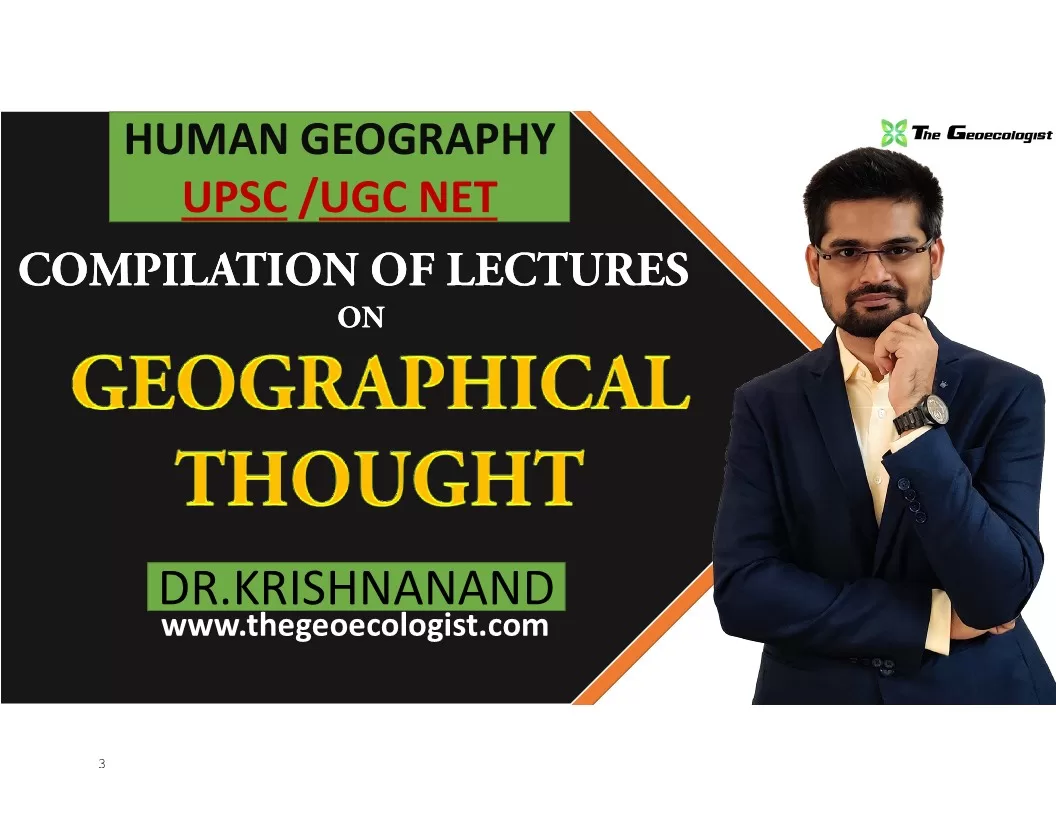

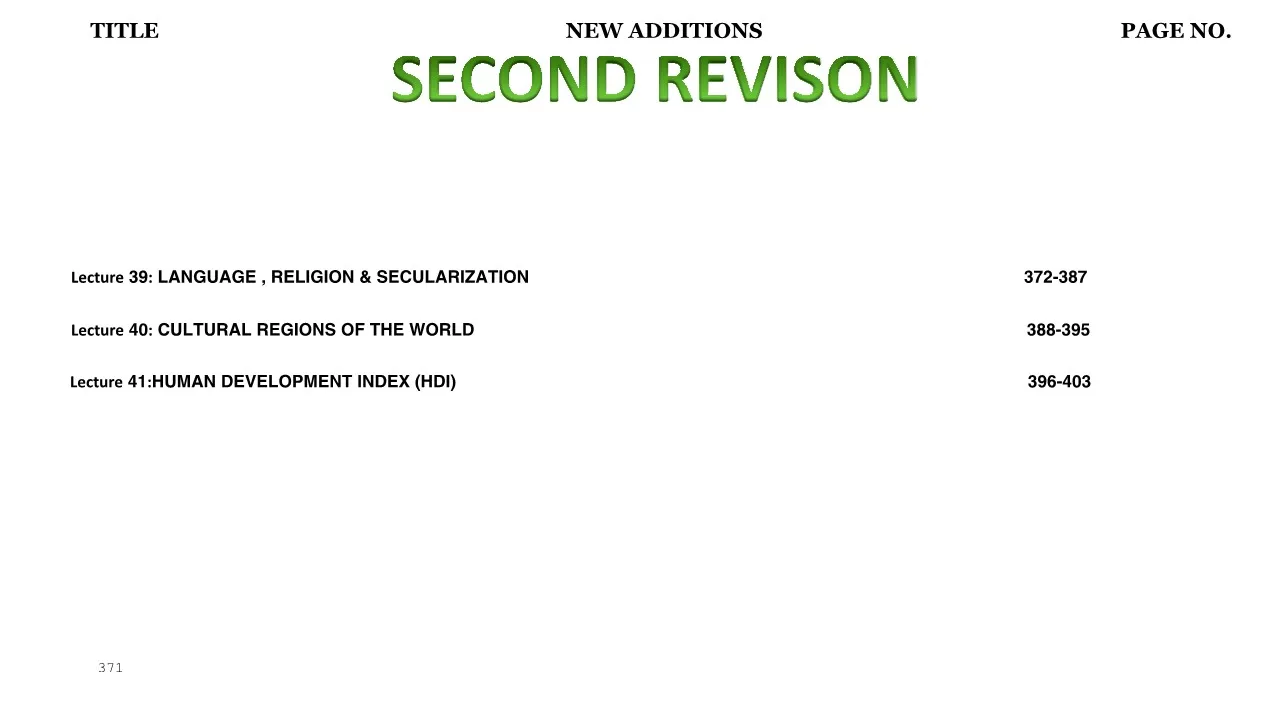
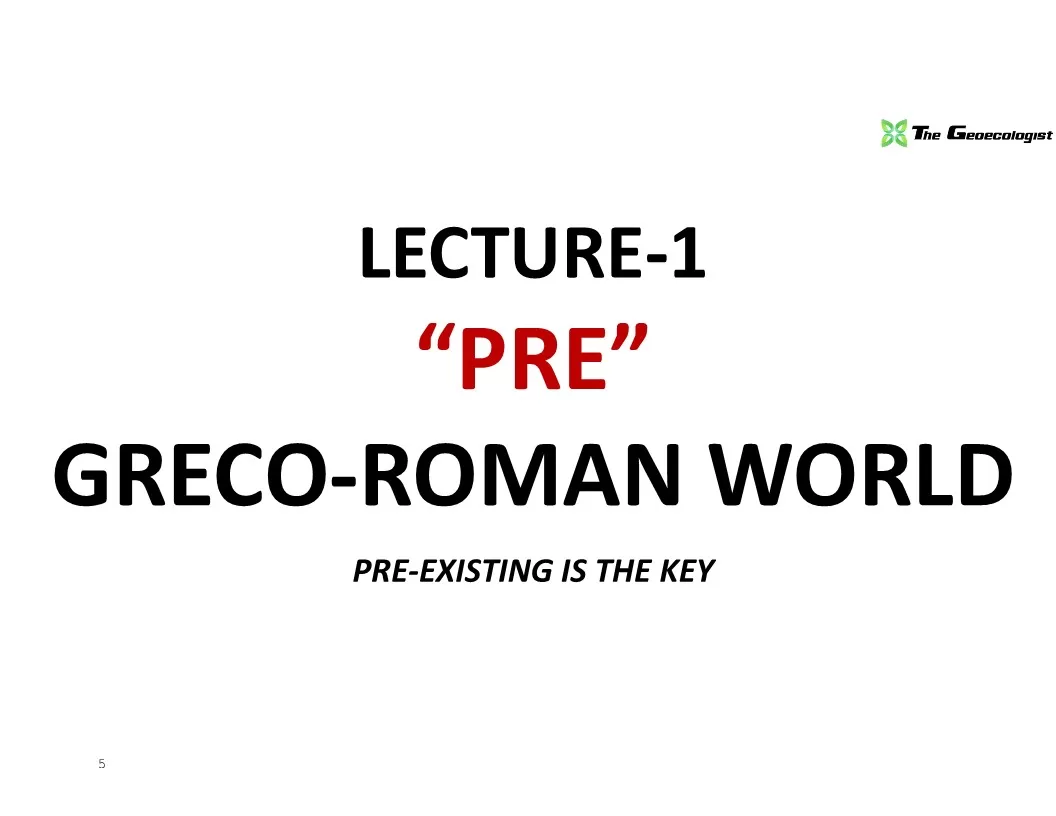
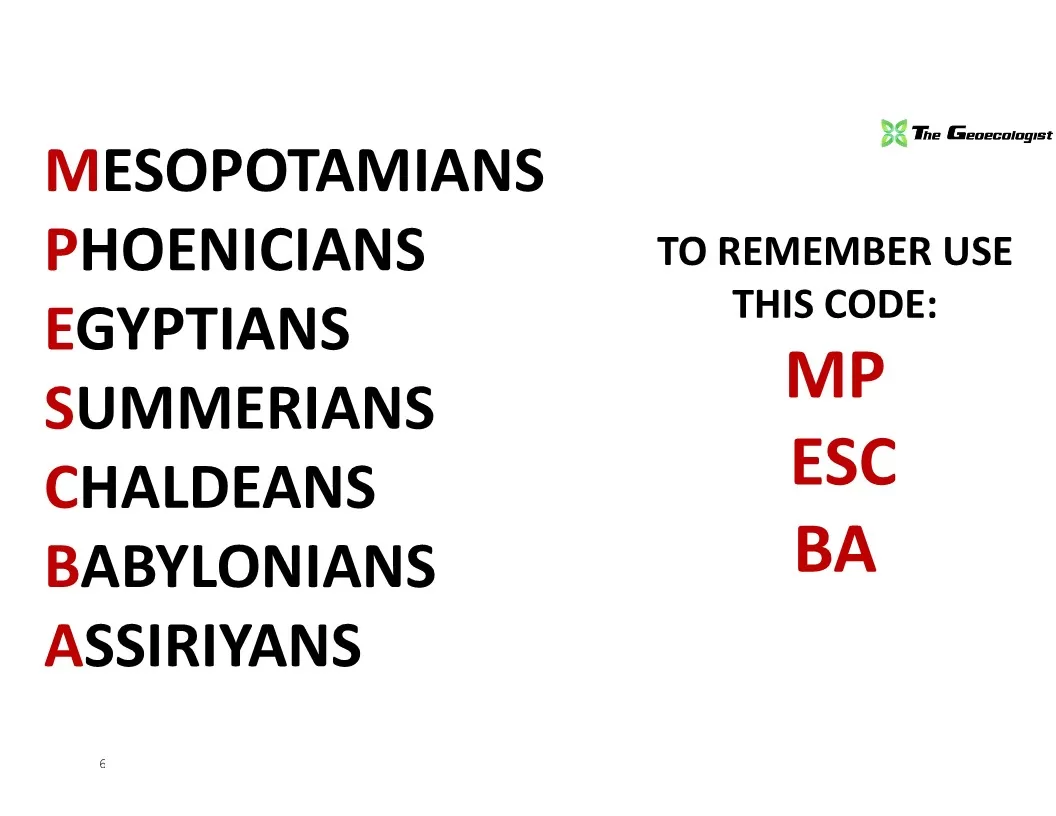
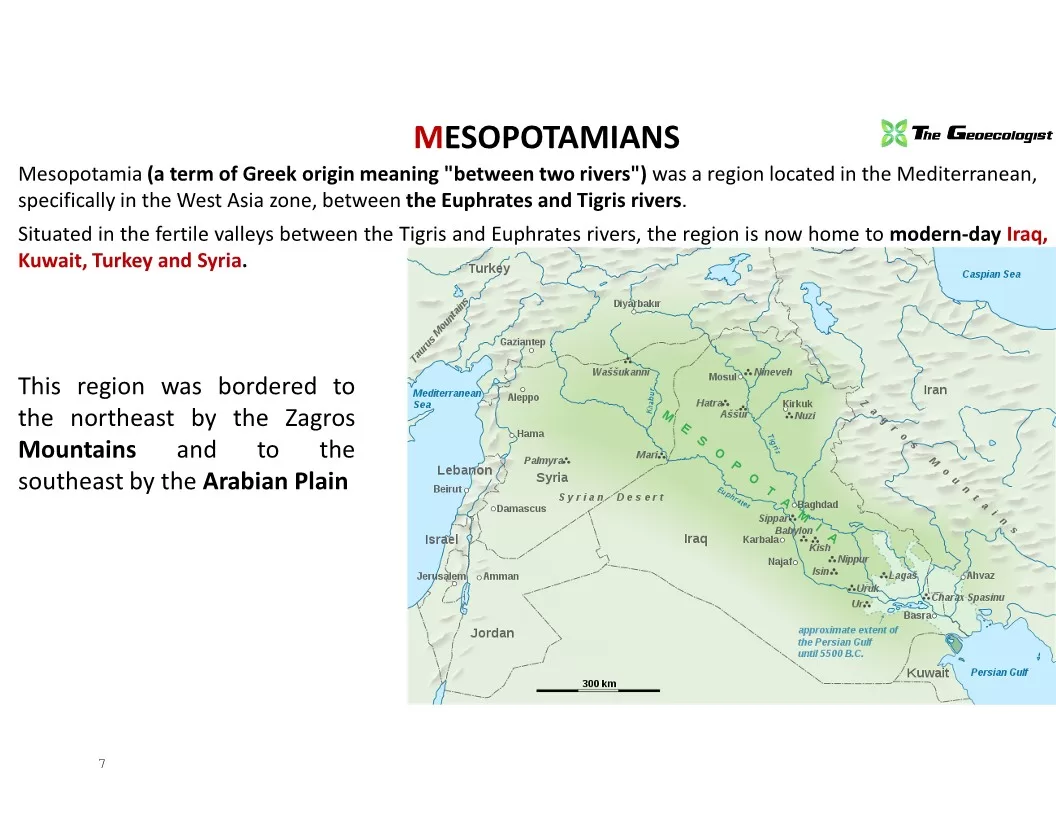
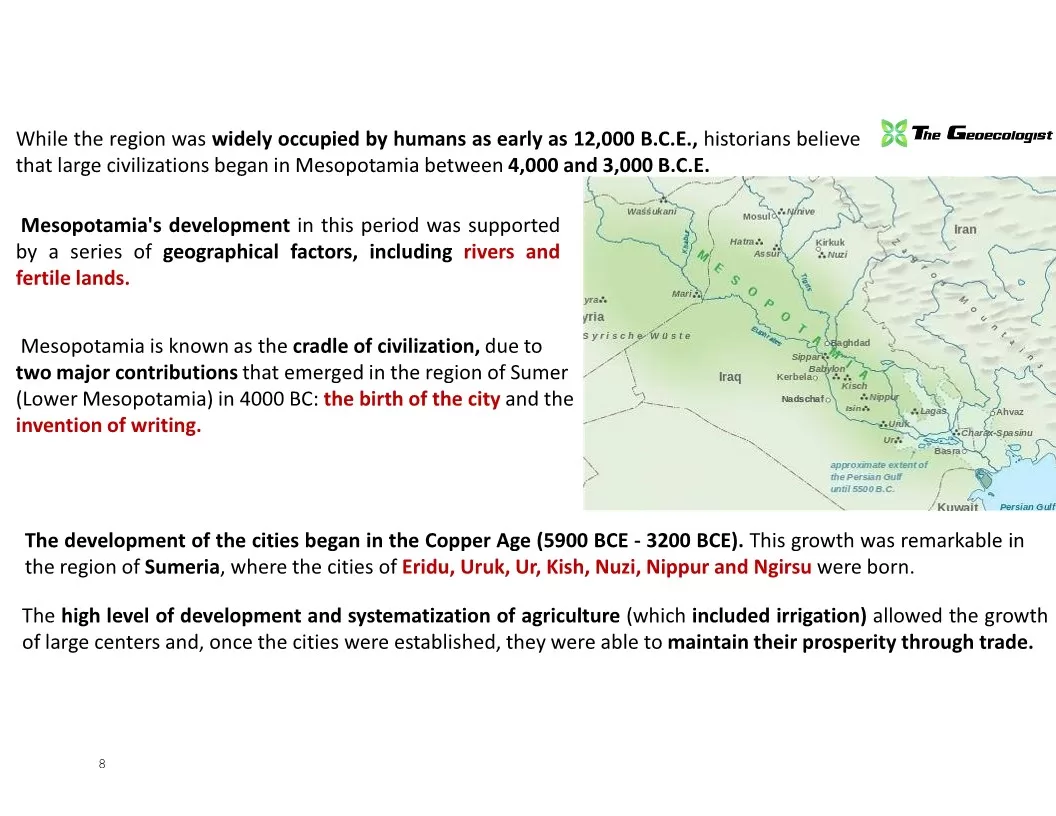
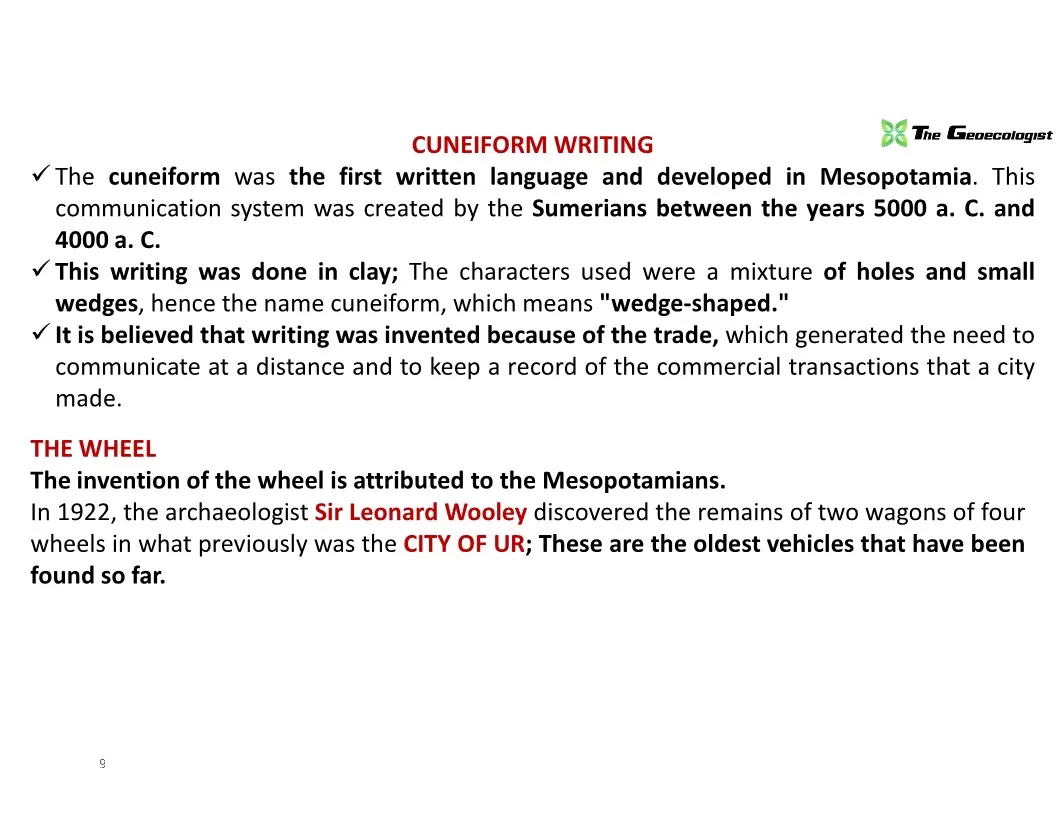
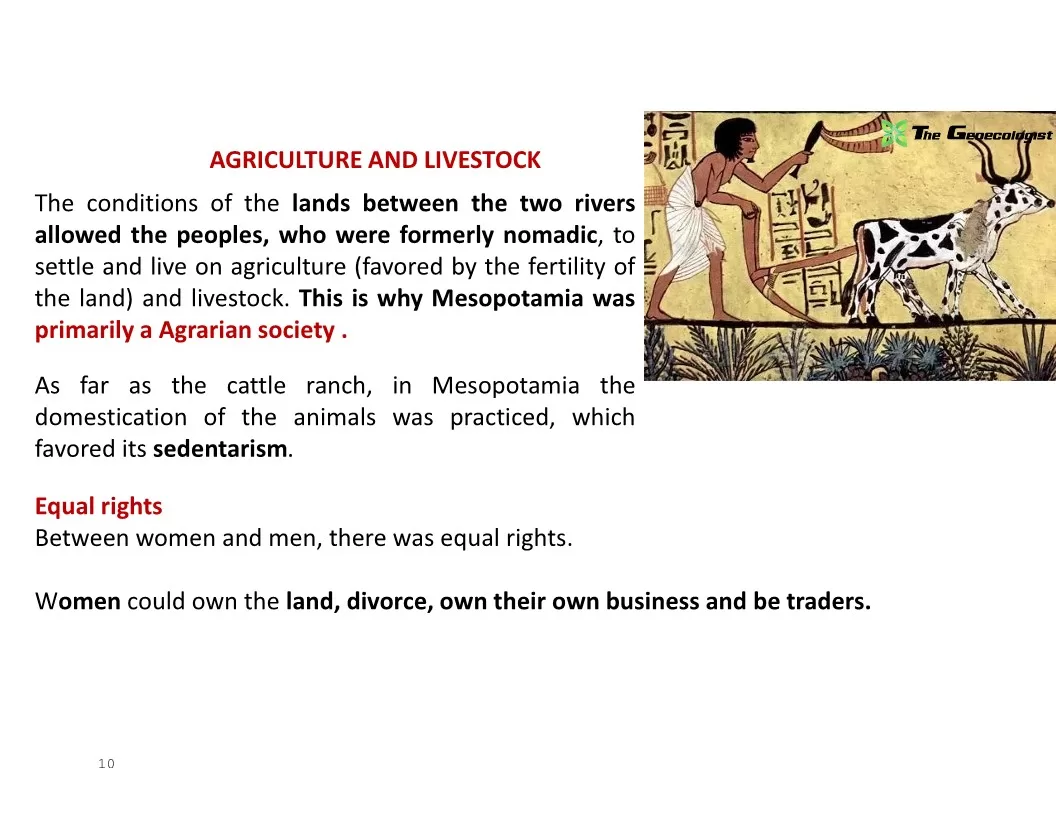












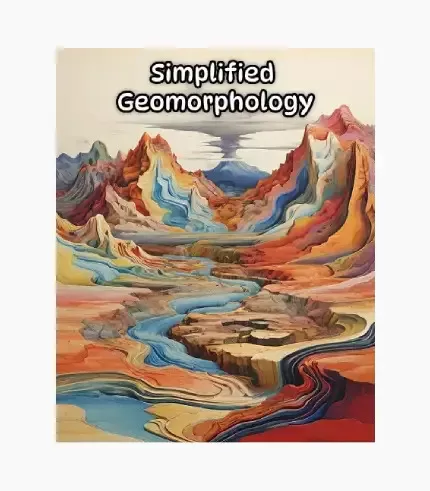

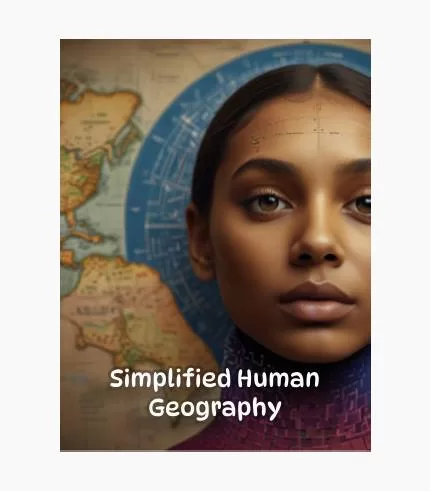

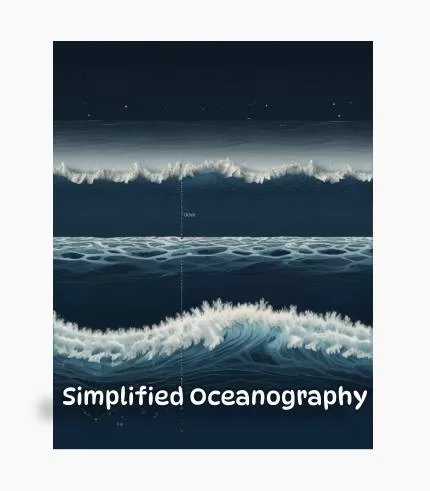

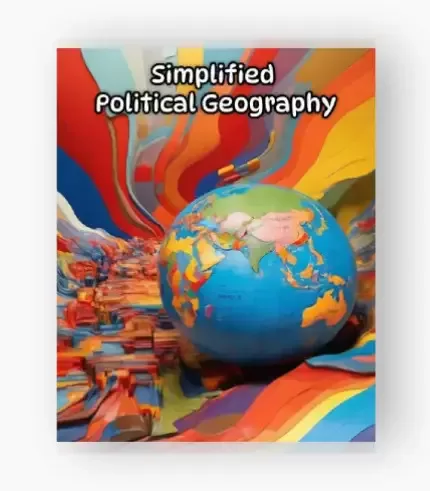

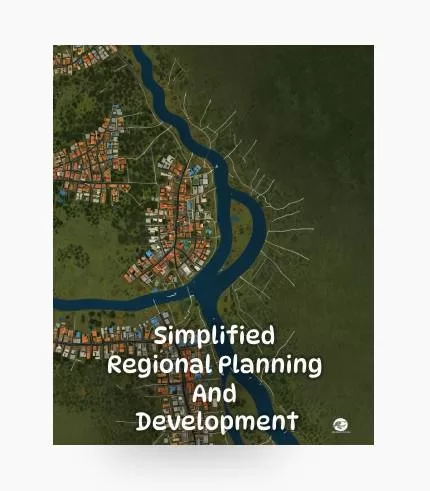

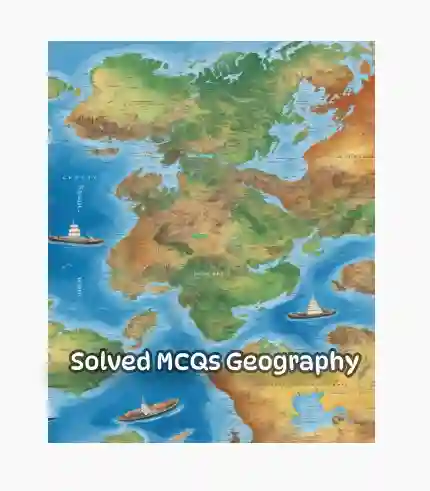
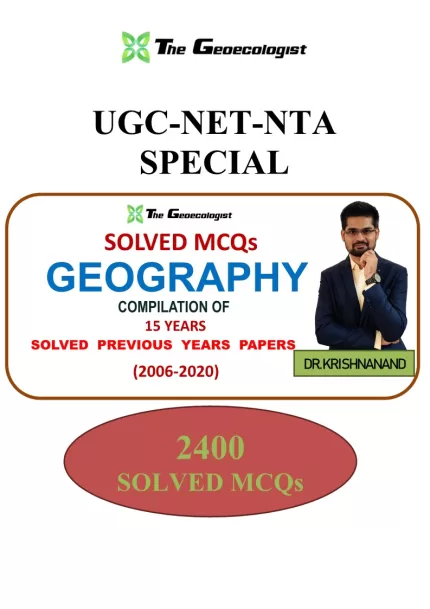
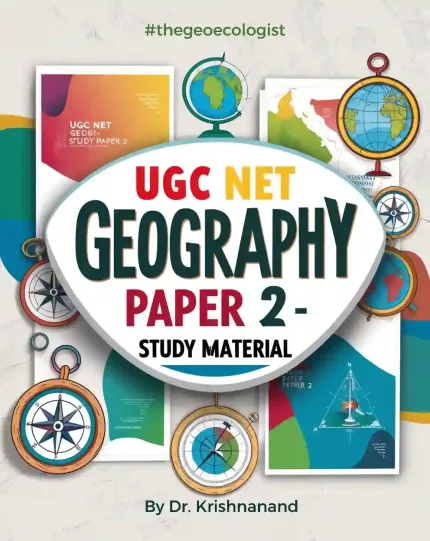
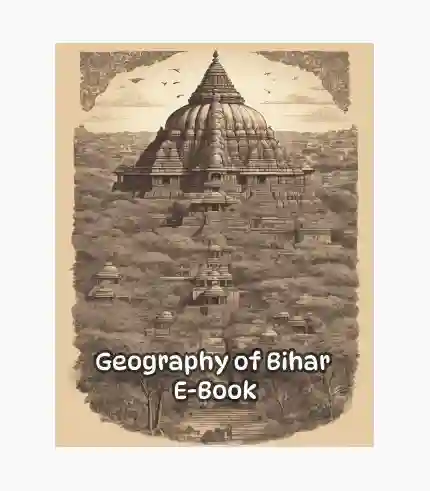

Reviews
There are no reviews yet.